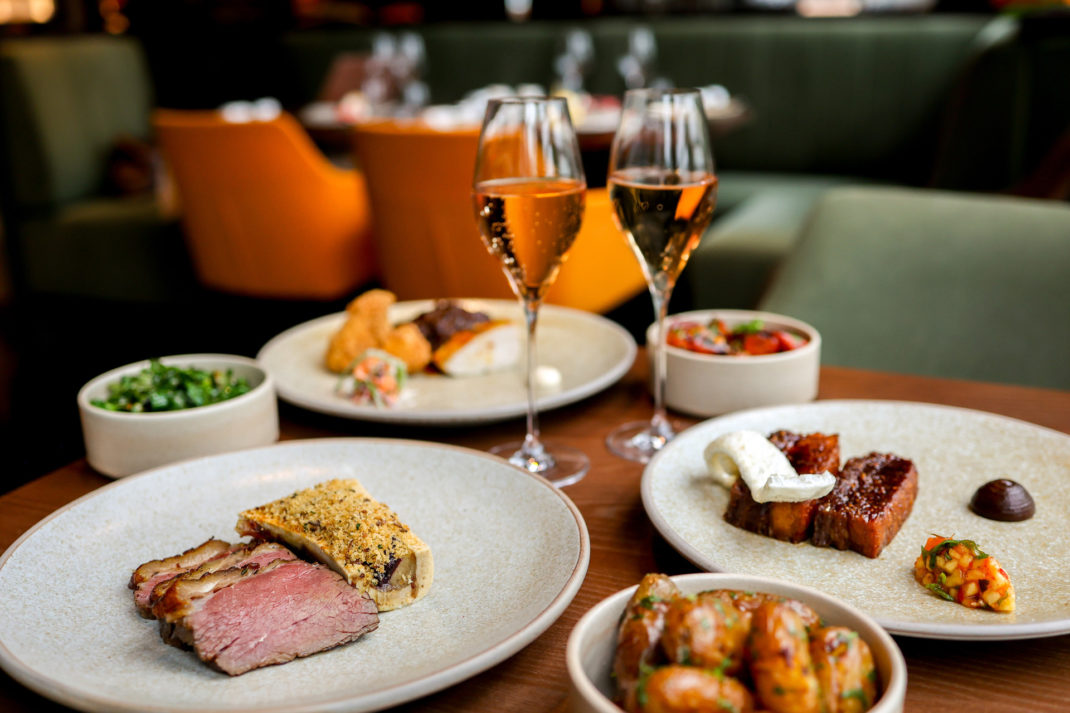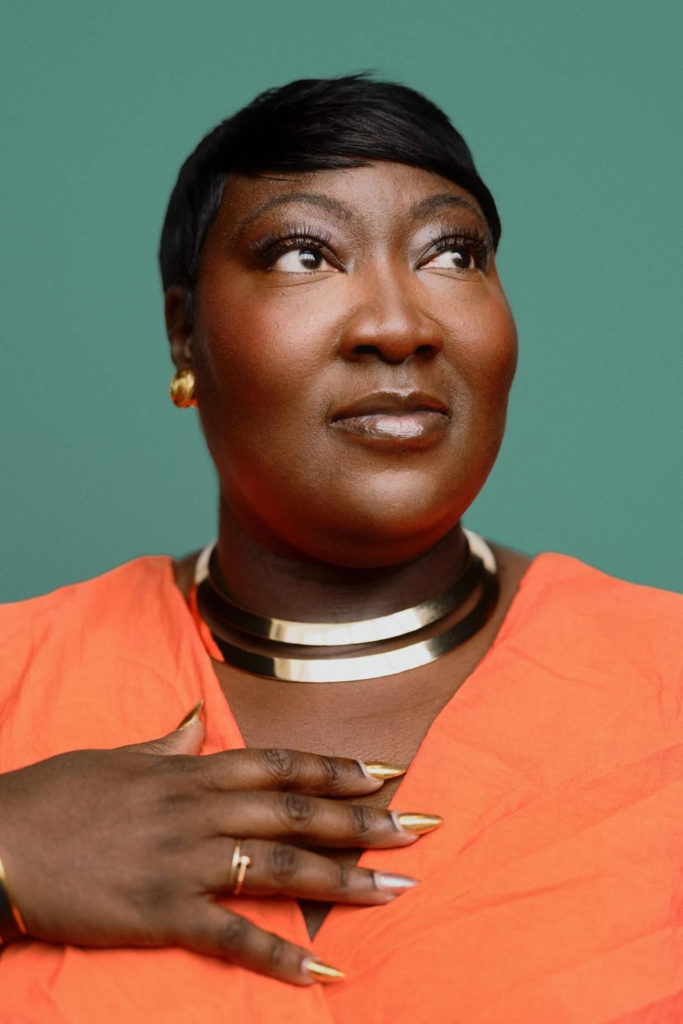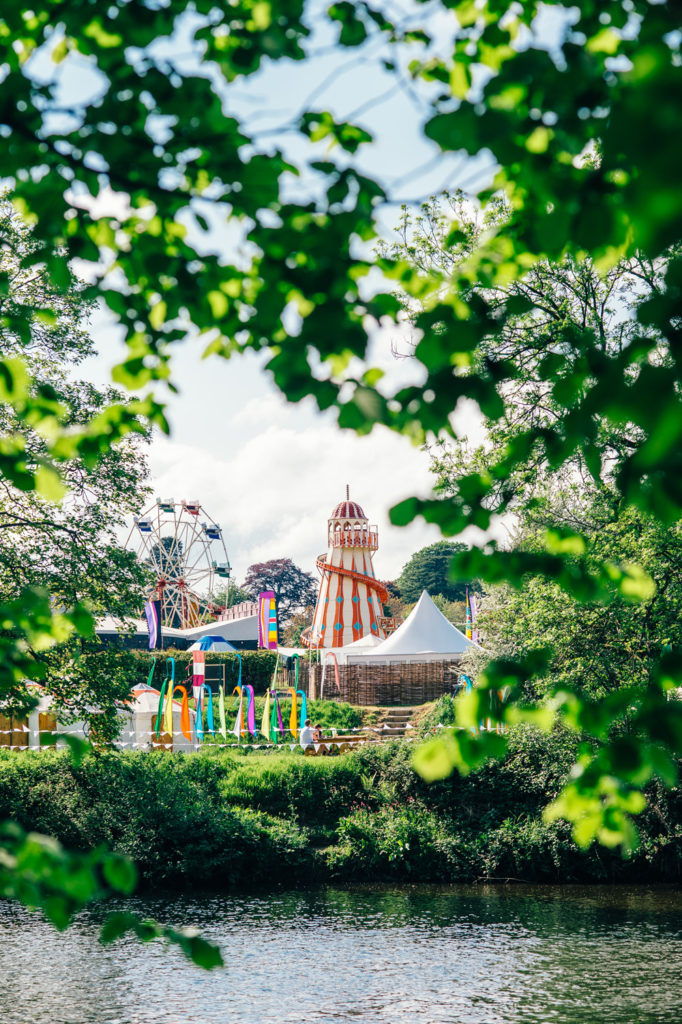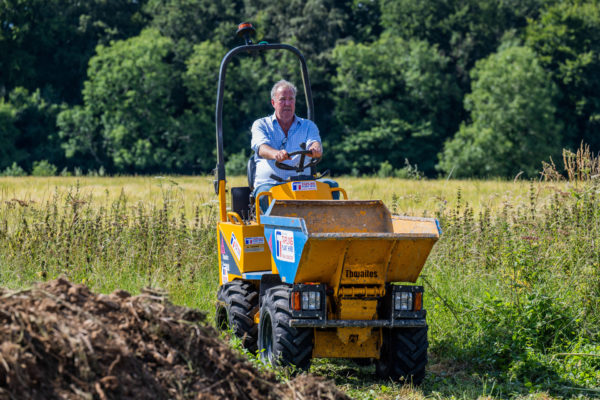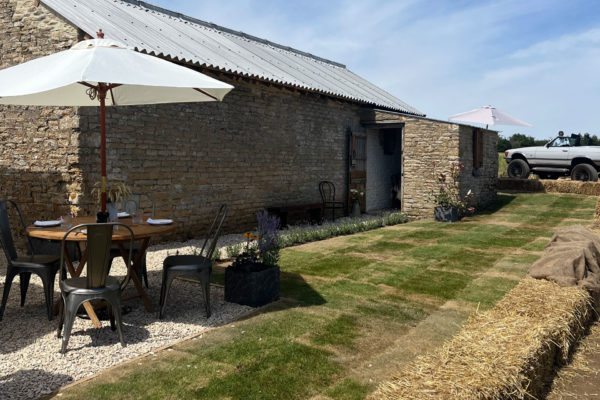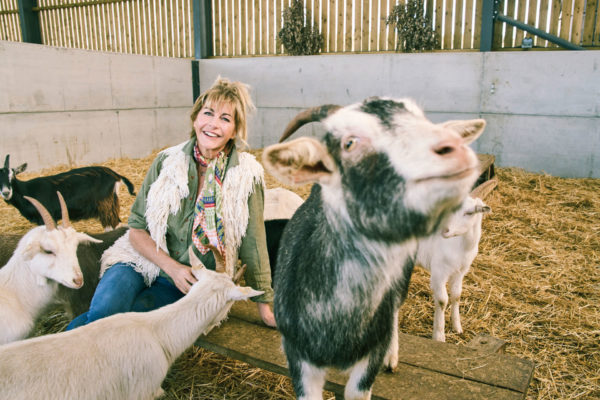Jeremy Clarkson On Clarkson’s Farm Season 3: ‘It Ticks Every Single Box That Television Should Tick’
By
12 months ago
The new season drops in May
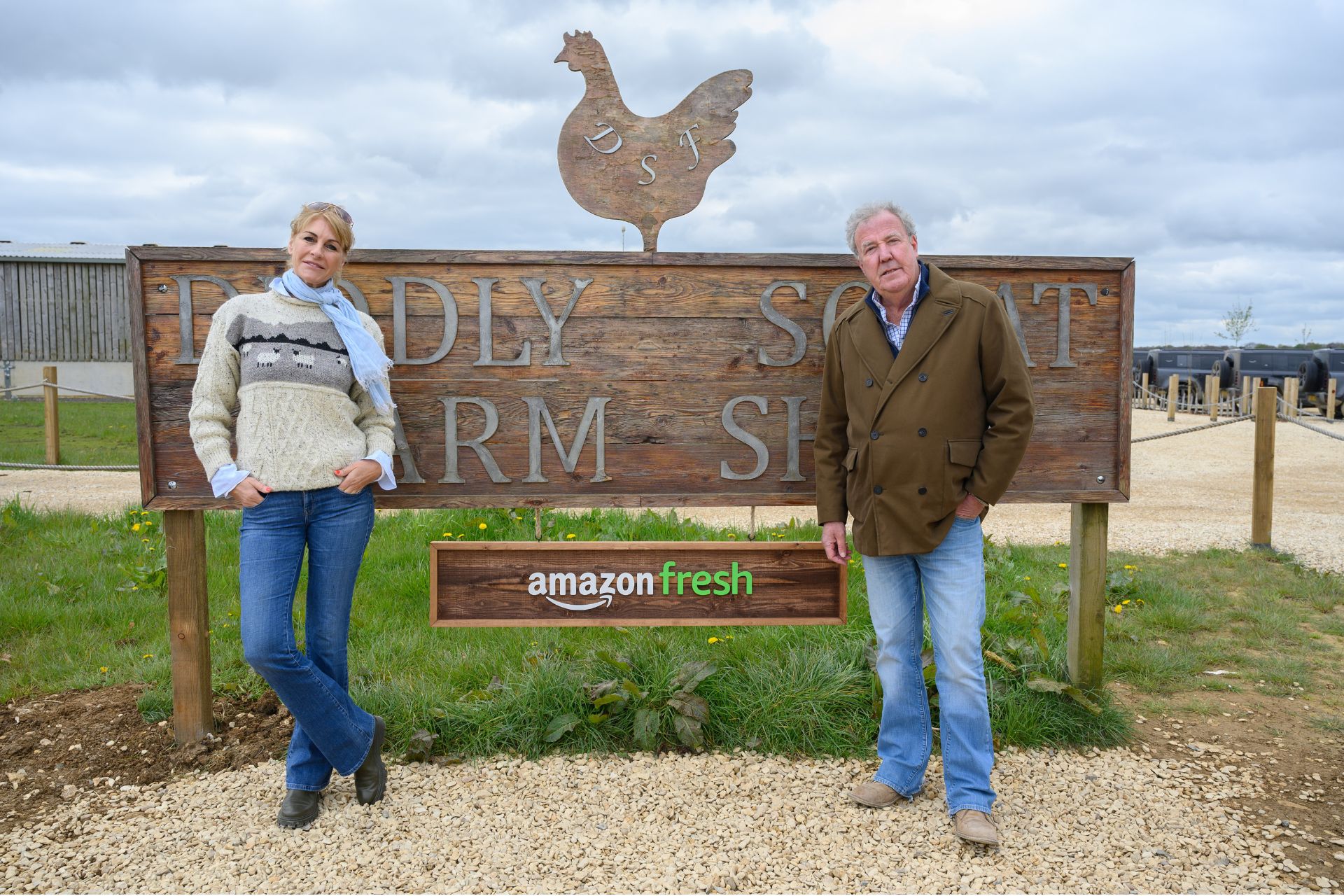
Once upon a time, you might not have thought that farming could provide nail-biting (or, indeed, entertaining) television, but Clarkson’s Farm arrived on Prime Video in 2021 and proved otherwise. Three years on and the third season is here, treating viewers to scenes both heartwarming and absurd (just try using a hoover to pick blackberries, as you’ll see in the trailer). Ahead of the long-awaited release of the new episodes (as well as the launch of the Diddly Squat Farm Shop range on Amazon Fresh) we caught up with the Clarkson’s Farm clan.
Jeremy Clarkson & Kaleb Cooper Give Us The Rundown On Clarkson’s Farm Season 3
Can you tell us a bit about the new season?
Jeremy: I had this idea that the farm is a thousand acres, which is a sort of average to large size farm. But we actually only farm 500 acres of it, and 500 acres is wildflower meadows and woods and streams and things of that nature. So I thought, I wonder if you can make any money out of farming bits of the farm that aren’t farmed. So I had a competition with Kaleb: I said, you do your farm and you do your wheat and your barley, and I’ll do my little bits and bobs in the woods and in the meadows and see what I can earn. And I lost. Not to put too fine a point on it. But it was a fun competition, it ran all year.
What we really did it for, though, was to highlight the enormous cost that farmers face just to try and get food out of the ground. So, ordinarily, on a farm like this, you’d probably spend £40,000 in seed and fertiliser and slug pellets and diesel and all of the various things you need to grow food. Well, last year, it was £108,000 that we had to spend. It’s a bit like, if you go to a casino and it’s a £2 minimum bet, you can have fun with your mates, you know, put two quid on the roulette table. But if they made you pay a £500 minimum, you’re not going to do it – it’s too risky. And farming is getting to that point, where it’s too risky. You just sit there and think, well, if I invest £108,000 and then the weather’s bad, I’ve lost the lot, you know? So that’s really why we did it. And I hope it works. Well, I hope farmers enjoy it anyway.
Has having the farm and doing all of this made you more politicised? More climate aware?
Jeremy: Politicised? No. I mean, the simple fact of the matter is that it doesn’t matter who’s in Number 10, nothing will change. Ever. That’s just a fact. Climate aware? Well, it’s certainly been a bit potty over the last four years, that’s for sure. Every single month seems to set another record. I mean, it’s pretty much May and I’ve got two jumpers on. So this is very cold – last May was incredibly cold. And the rainfall since October has been simply incredible. So, yeah, let’s say the weather is certainly misbehaving at the moment.
Season 3 is a very emotional season – we get to see the softer side of things. Was that intentional, or was it reluctant?
Jeremy: No, no, you don’t say, ‘let’s buy some pigs and hope they die.’ I mean, I’ve always liked pigs. My mother used to buy me toy pigs, you know, every Christmas and birthday when I was little – actually until I was in my twenties. A huge collection of them. I’ve always been fond of pigs. I thought it would be fun to have them, but then they just died in alarming numbers and it was very heartbreaking. I’d never ever seen Lisa cry. Not once, ever – until that all started unfolding. It was just terrible. I mean, they still die, but we’re getting more used to it now. We’re a bit more… robust. But it was a very heartbreaking time.
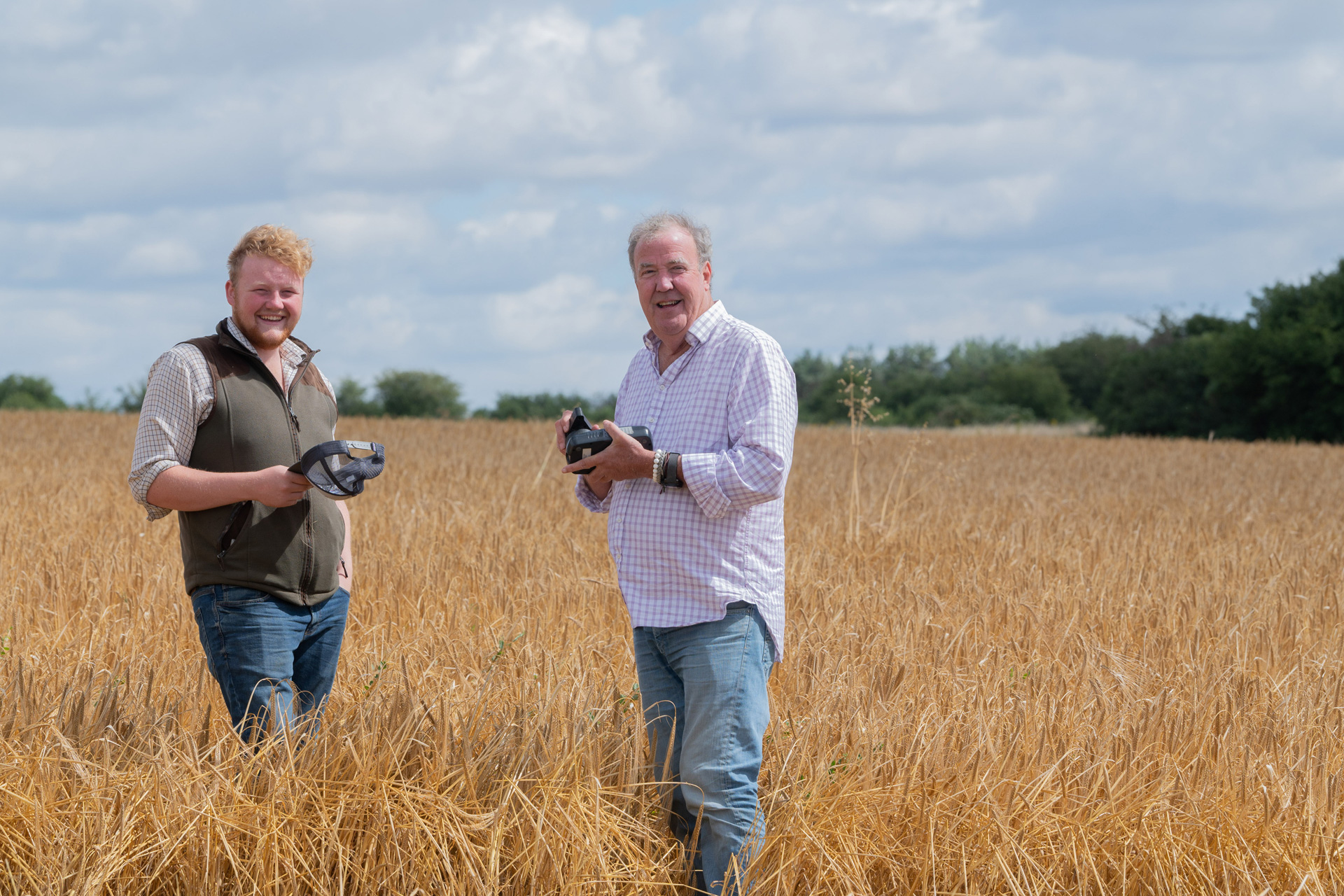
The ‘farmer’s paradox’ as you call it in this season – as a viewer, it’s heartbreaking to watch and deal with. Are you getting tougher, or is it something you always knew you’d have to do?
Jeremy: It’s weird when you go down and you see them. I like the cows as well, I think they’re tremendous. And we’ve got a few of the goats, I’m very fond of those. Kaleb keeps saying ‘Kill the goats! Go on, kill them, you can sell them and we can eat them.’ But I actually thought, no, no, I want to keep them as lawn mowers because I like them. But the pigs, you have to sell them. Otherwise nobody would keep pigs, if you didn’t eat them. There would be no cows or pigs in the country if you didn’t eat them. I’ve always said that about giant pandas – if you want to save the panda, start eating it. And then farmers will quickly go, ‘I know how we can get this lot breeding.’ But, yeah, in order to have the animals you have to eat them at the correct time.
It is weird, because you love them and you give birth to them and you nurture them and you feed them and you take care of them and you get the vet round when they’re poorly… and then you kill them. And it is a strange place to be when you haven’t been a farmer all your life. But we are getting better at it. We definitely are.
How much of the show is planned? Are there times when you have to stop filming, when you go and fetch Charlie to tell you off?
Jeremy: No, no, no, it just doesn’t work like that. I read a piece recently that a farmer had said that a tractor would never do a wheelie and you’d never put Kaleb in the weight box (which we did in season 2). But it did happen! Kaleb will tell you that it did happen. And when I’m making whatever I’m making – mustard or jam or whatever – Charlie drops into the farm probably once, maybe twice a day. So, no, everything that happens is genuine reality television. It’s not hosted by somebody in purple spectacles with a zany jacket, you know, it’s absolutely real. What you say actually happens and none of it is planned. I mean, in The Grand Tour, everything was planned. Literally everything, you know, ‘Richard, move your eyebrow that much.’ Nothing is planned on this. Nothing. I have no script, and every single day when we meet to do filming, we have a vague idea of what we need to do – we’re doing season 4 now – but I can guarantee that we’ll end up doing something completely different, because the weather will have changed, or some fence will have fallen down, or whatever it might be. You never ever know what you’re going to do in farming. Never. But as long as you get content, it doesn’t really matter what it is.
Do things feel different after the success of the show?
Kaleb: Not really. Jeremy and I talk all the time. He’s got a little bit of advice for me and I’ve got a little bit of advice for him. So that’s why it works so well I think.
Jeremy: I think it’s very easy to be grounded if you don’t leave Chipping Norton. If you walk down the streets of chipping Norton with Kaleb, everybody knows him. And they’ve always known him ever since he was two when he was selling them eggs. So you don’t really see a change because it’s not like you’re trying to get the table at The Ivy, if you know what I mean.
Kaleb: Where is that? What is that?
Jeremy: Exactly.
The relationship between you both has blossomed into one of the loveliest in television. In this season, Jeremy, you start taking advice willingly from Kaleb, rather than reluctantly.
Jeremy: I’ve always taken advice from him. I think the difference is…
Kaleb: Come on, be nice.
Jeremy: No, no, I’m just trying to think of what aspect of farming I’ve picked up. That’s really the change: he tells me to do something that I didn’t used to be able to do at all, and now I can do it a bit…. I still can’t hitch up a trailer.
Kaleb: That’s quite annoying, I still have to do that for you.
Jeremy: So it isn’t as though my attitude has changed. it’s just I’ve picked up a few things. I just can’t think what any of those things are at the moment.
Kaleb: I can name a few things, actually. I can be nice for once. I mean, from the start, when we first got pigs, in this season – at the start, I did think, ‘oh god, another thing I’ve got to babysit’. But actually it’s the one thing on the farm that I can leave you to do and you do a really good job. He’s actually a really good pig farmer.
Jeremy: If you see the pig scenes [in this season] there might be some argument.
Jeremy mentioned the competition between the unfarmable land and you [Kaleb] being promoted to farm manager.
Kaleb: I’m sure I was Farm Manager for about five years, but on paper it was last year, apparently. But, yeah, I think it was a really good idea, especially the competition that we had. But the competition does really highlights how much money you have to put in as a farmer to actually produce food for people on their tables.
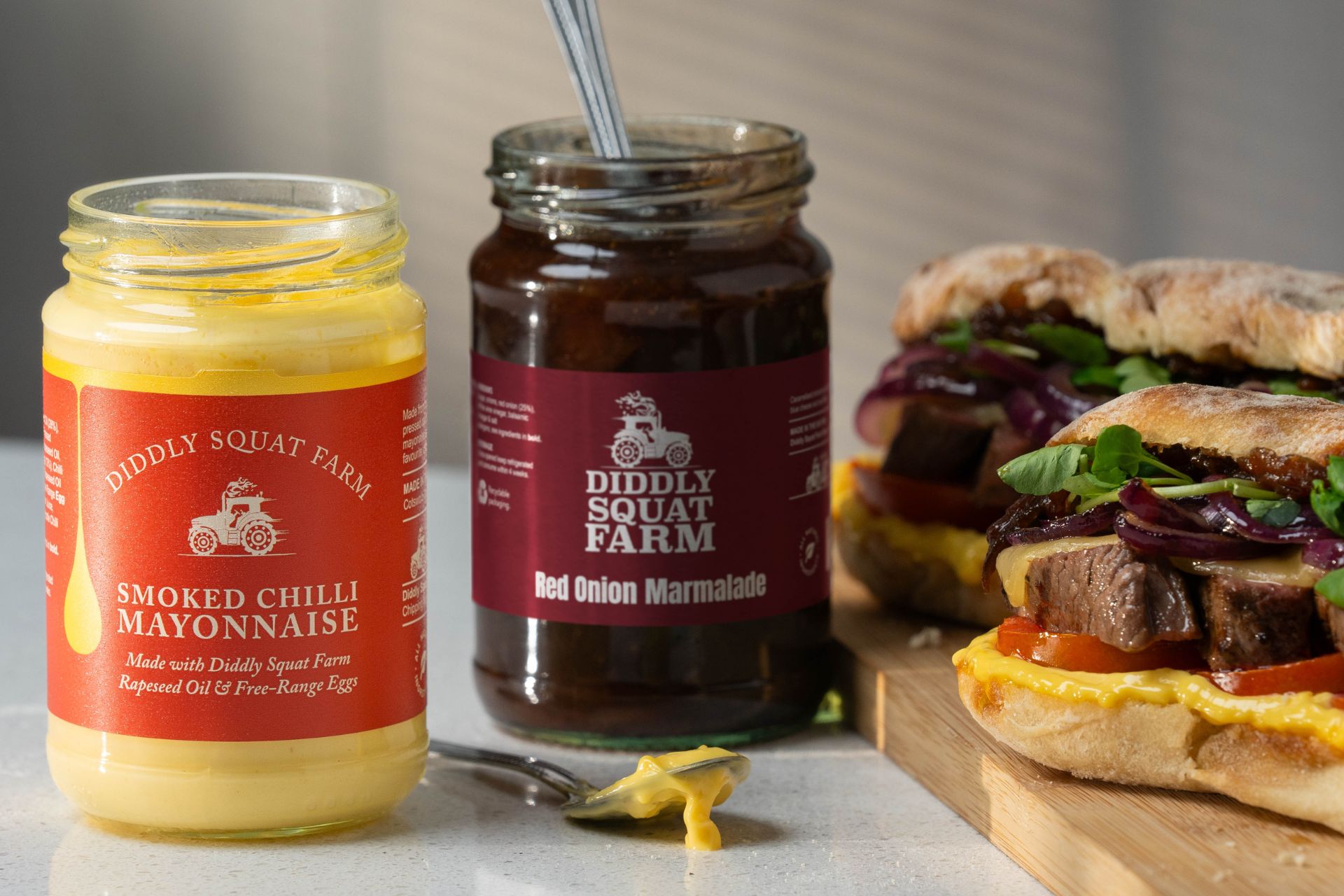
There’s loads of press from the farming community, but are they completely on side? They must be overjoyed at the level of attention you brought to the difficulties of farming in the UK…
Jeremy: I think so. I mean, while I love the trailer for season 3, it does slightly give the impression that it’s become hobby farming, which we’ve tried to avoid. I mean, Kaleb is pathological that we’re not just going, ‘look at this little lamb we’ve reared on this fresh straw, look at these little hens, aren’t they pretty.’ He’s very keen that we show farming, proper farming, and we do. So don’t be fooled into thinking that because the trailer shows me hoovering blackberries off a bush –
Kaleb: That is something I’m never going to forget, driving up and seeing you hoovering.
Jeremy: I had that idea at four in the morning. And it worked!
Kaleb: It actually did work.
Jeremy: It did work. But, no, it’s not hobby farming. The vast majority of the show is about big farming, proper farming. I mean, if you look around, it’s a farm. It’s not, you know, a little 20 acres or something. It’s not a petting zoo.
This year, it seems like all of you have kind of found your roles within the farm. Is that something that’s taking time? Was there a bit of jostling, or was it all pretty relaxed?
Kaleb: I think that’s a good thing. I think it’s how a farm works. At the start, when you put a team together – I mean, I’ve been working there for eight years now, but I think when you put a team together, you’ve got to find your roles. And now I’d probably say that we have found those roles. Everyone’s got that specific role that they go and do on a daily basis. So, all of a sudden, teamwork happens, and you all combine to get a job done in the end. So, if Lisa needs a hand up here, we all come up here and help Lisa. Or if Jeremy needs a hand doing whatever he’s doing, hoovering hedges, we’ll go and help him do that. Or if I’m out there making some money on the farm, we’ll go and help each other to do that. So I think, as a team, we’re actually a good team. Even though Lisa and I probably do the majority of the work, as well Charlie and Gerald.
Jeremy: [Looks perturbed] You wait until you get a Henry Hoover on your blackberry hedges. It’ll change your life.
Kaleb: Coming up the drive for work in the morning and you’re just hoovering a hedge – I just thought, you know, I haven’t got the energy to actually stop and ask him what he’s doing.
Jeremy: I could not believe it works. But there we are.
Kaleb: I do like the idea of farming the unfarmed.
We need to talk about the pigs in episode 4. It’s your own red wedding.
Jeremy: Red wellies?
Red wedding, from Game of Thrones. The most devastating episode of television. You upped that with episode four.
Jeremy: It was horrific. I mean, yes, episode four was a red wedding.
Do you regret getting the pigs involved? Do you regret buying them? Has it now evolved into something that’s working for you?
Jeremy: Well, we had a bit of a calamity again the other day, but by and large they’re going quite well. I made an invention which has improved the mortality rate.
Charlie: It reduced the mortality rate, rather than improved it.
Jeremy: You know when you were saying that we panic when Charlie arrives on the scene? Here he is, straight away. Corrected on my English there. Thank you, Charlie.
What would you say to the people watching who have only seen the first four episodes? How do the following four transpire? Where do we end up?
Jeremy: Well, it’ll be a nice surprise for you. I watched the final four last night because I saw that first goal go in against Chelsea and turned it off.
Kaleb: Five nil, wasn’t it?
Jeremy: Oh, shut up. Yes, I watched the final four last night. I won’t spoil it for you, but it’s lovely. I think it’s a very, very heartwarming programme. I think it ticks every single box that television should tick: it’s funny, it’s informative, it’s charming, and it’s heartwarming. It’s a very nice way to spend your time, watching that show.
It’s an amazing show, it really is one of the best shows on TV. And it feels quite effortless, even though I’m sure it is not effortless at all.
Jeremy: It is because I don’t have to pretend to be someone else. I mean, with The Grand Tour, Richard Hammond isn’t as stupid as he’s made out. And I’m not as bombastic as is made out. And James May… isn’t quite as boring as he’s made out. And so you’re playing a caricature. you’re playing a role, you know? You’re there to provoke, and be stupid. Here, we haven’t got any of that. So we’re just ourselves, you know. You get up and you just have to be yourself, which is incredibly relaxing. And in that regard, it is effortless. I mean, farming is not effortless. Make no mistake. But the television side of it is a piece of cake, because I don’t have to think, ‘right, I’ve got to say something idiotic now.’
Kaleb: You do that anyway.
Clarkson’s Farm series 3 launches globally on Prime Video on 3 May, and The Diddly Squat Farm Shop range is now available on Amazon Fresh online and in stores. amazon.co.uk
Images courtesy of Amazon.

